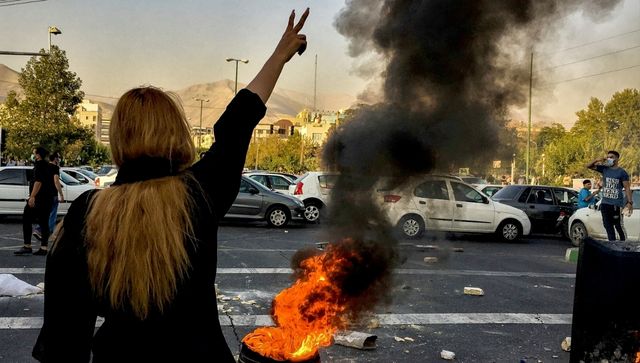Tehran: An Amnesty International report detailing the tortures three Iranian protestors had to withstand in prison raises raised concerns over the country’s judicial system. The three men, out of the many who are facing the death penalty in Iran for participating in anti-regime protests, have been charged with “corruption on Earth” and “enmity against God”. Nationwide protests sparked by the death of 22-year-old Mahsa Amini have entered the new year with two Iranian teenagers now facing the death penalty after being charged over their involvement in the protests. An Oslo-based human rights group called Iran Human Rights says that at least 100 people in Iran have been arrested and are facing charges punishable by death ever since the unrest began in September 2022. ‘Men raped by prison officials’ One of the men named Mehdi Mohammadifard was reportedly raped by prison guards and brutally beaten, according to the Amnesty report. The rights organisation also learned that 19-year-old Mohammadifard has sustained anal and rectal injuries. Mohammadifard was convicted after he went into hiding following his summon by the Revolutionary Guards. During his arrest in October last year, Mohammadifard was thrown to the floor due to which he suffered a broken nose. The 19-year-old was sentenced to death with two other protestors, 18-year-old Arshia Takdastan and 31-year-old Javad Rouhi, according to The Guardian. ‘Ice placed under testicles’ The gruesome details in the Amnesty report said that Javad Rouhi was sexually tortured by “placing ice on his testicles for two days.” Rouhi also had to withstand beatings, floggings and electrical shocks. He was also hung upside down while being tied to a pole. Amnesty said that the accused have been denied the right to a lawyer of their choice and that their appeals are pending at the Supreme Court. ‘Iranian authorities must quash convictions’ The deputy director of Amnesty International, Diana Eltahawy, said, “The fact that Arshia Takdastan, Mehdi Mohammadifard and Javad Rouhi and their anguished relatives live under the shadow of execution while Revolutionary Guards’ agents and prosecution officials reasonably suspected of responsibility or complicity in their sexual abuse and other forms of torture enjoy absolute impunity highlights the sheer cruelty and inhumanity of Iran’s judicial system.” “The Iranian authorities must immediately quash the convictions and death sentences of these young men and drop all charges related to their peaceful participation in protests. They must also order a prompt, transparent and impartial investigation to bring all those reasonably suspected of responsibility for their torture to justice in fair trials,” she added. Read all the Latest News , Trending News , Cricket News , Bollywood News , India News and Entertainment News here. Follow us on Facebook, Twitter and Instagram.
One of the male protestor named Mehdi Mohammadifard was reportedly raped by prison guards and brutally beaten, according to the Amnesty report
Advertisement
End of Article


)

)
)
)
)
)
)
)
)



